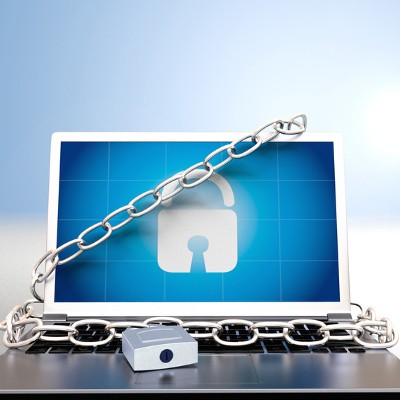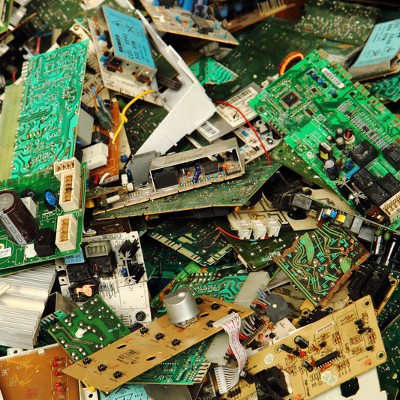NetWorthy Systems Blog
Ransomware is an online threat that continues to develop and evolve to accommodate the motives of cyber criminals around the world. Ransomware locks down your business’s files and demands a decryption key for their safe return, which makes it difficult (or impossible) to move forward with operations. How can you prevent ransomware from destroying your business’s chances of survival?
USB technology is widely-used and you’d be hard-pressed to find an organization that doesn’t utilize USB devices in some way, shape, or form. However, these devices often harbor unexpected threats that could put the security of your entire infrastructure in jeopardy. All it takes is one infected device to compromise your network. Do you know where your USB devices have been?
Technology can be a constant pain point for businesses of all kinds. Due to the ever-evolving nature of technology solutions, it’s tempting to cave in and purchase the latest and greatest innovations in the industry. Yet, does your business have the time to do so, let alone the budget? Progress can be stymied by a lack of funds and personnel, but it doesn’t have to be.
Have you ever been forced to use a slow computer out of necessity? This is a practice that tries more than just your patience; it can also put a drain on productivity, and in turn, your business’s profits. Therefore, we’d like to ask you a very important question: can your business really afford to deal with technology that isn’t performing as intended?
Often times, people can get distracted by flashy new features, and with technology, this happens more than anywhere else. Since IT grows at such an abnormally fast rate, end-users can be left in the dust if you’re not intentionally trying to keep them in the loop. In fact, it’s highly recommended that you implement IT solutions for your business that are not just effective, but also user-friendly.
Does your SMB have an internal IT department? Chances are that it is a major pain point for your organization, and even if you do have one, it might be bogged down with so much work that mistakes can happen and threats can slip through the cracks. Sometimes the best way to protect your network is to know where and how threats manage to get there in the first place.
You may have heard about the Internet of Things in passing, but do you truly understand the nature of these connected devices, and how they will affect your business in the coming years? The Internet of Things is a major trend that needs to be addressed if your business plans on succeeding in the near future.
Let’s say that your team is deep within the throes of productivity on a major project, and even the slightest hiccup will knock off their momentum and derail all progress. What would happen if the software they need to do their job suddenly became unusable, or settings on their workstation get changed without their knowledge? Without a reliable IT department, you might be out of luck.
Every business has to deal with a certain amount of risk from various factors, from hackers, natural disasters, or user error. As a business owner, it’s your responsibility to ensure that your organization can bounce back from a potentially dangerous situation with minimal casualties. We’re here to help you understand the importance of a risk assessment, and what you need to look out for.
You likely use several wireless devices and enjoy their many advantages, like not having to be wired to your desk. Yet, it’s unlikely that you’ve transitioned your entire office to wireless technology. Thanks to the advancements and affordability of wireless technology, having an office that’s completely wireless may be entirely within the realm of possibility.
So you’ve gotten yourself some new hardware. That’s great, but what are you going to do with your old equipment? You need to make sure that you’re handling your old technology properly, and there may be ways for your old hardware to find a second life. Before chucking it in the trash, first consider your options.
 There are many types of malware out there, but few are as scary as ransomware. Imagine being struck by a threat that instantaneously locks down your files and keeps you from accessing them until you pay a certain amount of money. If your business is targeted by ransomware, would you be able to protect it from dragging your operations into a bitter pit of despair?
There are many types of malware out there, but few are as scary as ransomware. Imagine being struck by a threat that instantaneously locks down your files and keeps you from accessing them until you pay a certain amount of money. If your business is targeted by ransomware, would you be able to protect it from dragging your operations into a bitter pit of despair?
 For small and medium-sized businesses, technology management can be a tricky situation. You want to ensure that your IT doesn't break your budget, but you also want to make using your technology as easy as possible for your end users. Unfortunately, for many employees, your business’s technology conduct and practices could be driving them insane.
For small and medium-sized businesses, technology management can be a tricky situation. You want to ensure that your IT doesn't break your budget, but you also want to make using your technology as easy as possible for your end users. Unfortunately, for many employees, your business’s technology conduct and practices could be driving them insane.
 Downtime is a critical problem with many businesses that have limited IT budgets. Organizations need to ensure that their bottom line is as high as possible, but if you’re constantly plagued by persistent downtime, your business is losing money when it doesn’t need to. We’re here to inform you about downtime, and what it can cost your business if it’s not addressed promptly.
Downtime is a critical problem with many businesses that have limited IT budgets. Organizations need to ensure that their bottom line is as high as possible, but if you’re constantly plagued by persistent downtime, your business is losing money when it doesn’t need to. We’re here to inform you about downtime, and what it can cost your business if it’s not addressed promptly.
 The cloud is revolutionizing the way that businesses store and manage data, applications, and even abstracted hardware like servers and desktops. However, some businesses are still reluctant to adopt the cloud, despite its overwhelming advantages for small and medium-sized organizations. Therefore, we’re taking it upon ourselves to “demystify” the cloud, so you can see just how great of an innovation it is.
The cloud is revolutionizing the way that businesses store and manage data, applications, and even abstracted hardware like servers and desktops. However, some businesses are still reluctant to adopt the cloud, despite its overwhelming advantages for small and medium-sized organizations. Therefore, we’re taking it upon ourselves to “demystify” the cloud, so you can see just how great of an innovation it is.
With Networthy Systems’ proactive Hassle-Free IT, broken technology will no longer be a problem for your business.
Technology is designed to make your business more productive, yet it is detrimental when it isn’t working properly. Hassle-Free IT Services provide PROACTIVE care of your technology, to reduce broken IT, completely.
 Businesses today are responsible for keeping the data in their care safe from hackers. There are two kinds of data that a business must protect: the information of their customers, and their own data (eg. company policies and employee information). Which of the two do you think the average business does a better job of protecting?
Businesses today are responsible for keeping the data in their care safe from hackers. There are two kinds of data that a business must protect: the information of their customers, and their own data (eg. company policies and employee information). Which of the two do you think the average business does a better job of protecting?














